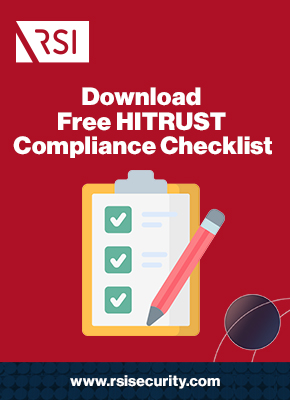Cybercriminals are already clearly established bad guys online, and it’s up to your cybersecurity tools and standards to keep you safe.
Top-of-the-line firewall and antivirus software might go a long way toward protecting the data on your own network, but how do you protect the most sensitive data when it lives somewhere else entirely? You surely need someone else’s help to protect your data when it lives in places you might not even be aware of. The healthcare industry stashes patient data all over the place, for example.
From the pharmacy to the insurance office to the examination room, we almost implicitly trust other people’s terms for safely storing our medical details. Details like your birthdate and credit card number live on hard drives that you’ve never even seen or touched in person. But how often do you talk about cybersecurity practices with your doctor’s office? And beyond specific healthcare data concerns, how can you protect any information in 2019 once you let it go from your hand?
Assess your HITRUST compliance
The HITRUST Alliance (we pronounce it “high-trust”) is a collection of field professionals who shape and define strong cybersecurity standards that are especially useful to those in the medical sector. Operating as a private company in Frisco, Texas, HITRUST issues and validates certifications that a healthcare organization’s technical infrastructure is secure and up to snuff. Third-party HITRUST auditors might run the assessments that determine a business’s compliance, but they pay a fee to the central organization and must also maintain their assessor status.
In the spirit of other standards like PCI or HIPAA compliance, companies that exhibit HITRUST compliance show that they’ve taken an active, mindful for storing and transmitting your personal information online. It’s easy to cut corners on such a commonplace task and take the details for granted, but the simple act of sending your general physician’s records to a specialist for further consultation is subject to all kinds of regulation.

Where there is information, there are bad guys looking to steal it, and healthcare organizations make especially appealing targets due to the nature of the data they hold. It’s both sensitive and identifiable, and in many cases can even include credit card numbers with associated transaction details. This information could be used to cause great harm to someone’s identity or credit card balance. alike. Companies need an ally to help them walk the road of sound cybersecurity, and the HITRUST Alliance is surely that ally.
The HITRUST Alliance exists to champion programs that safeguard sensitive information and successfully manage information risk.
This group of people are essentially cheerleaders and domain experts for topics at the intersection of healthcare and cybersecurity. They’re like a kind of League of Justice gone online to make the internet a safer place for storing and sending data. By collaborating with privacy, information security, and risk management leaders, the HITRUST Alliance is uniquely positioned to solve cybersecurity issues and educate the public.
Their security certification is called HITRUST, and it’s a major asset for any business wanting to signal its adherence to a strict security standard.
The Alliance’s common security framework (CSF), simply called HITRUST, is valuable to healthcare organizations needing to demonstrate high confidence in their cybersecurity.
A common security framework is simply a guide of existing best practices that organizations can implement to reduce their cybersecurity risks and maintain control of their data management processes. This makes the HITRUST Alliance’s roadmap one of the more stringent out there. Adherence to HITRUST standards will protect organizations from a wide variety of cyberattacks, and this makes their use case especially clear for healthcare organizations.
The nature of the healthcare industry is that the quality of your data — not only your current medical workup but all your historical records — is often related to the quality of your medical outcome. Doctors securely accessing great data can make a great diagnosis. But incentives are higher than ever for the internet’s bad actors to target medical facilities specifically.
More and more every day, hackers want to harvest healthcare servers like the honeypots of sensitive, identifiable information they are. HITRUST-certified operations present themselves as formidable opponents.

HITRUST isn’t HIPAA, and the opposite also isn’t true.
These two terms are hardly interchangeable. While HIPAA is a set of regulations for medical outfits to adhere to, the HITRUST Alliance is an organization that moves those businesses into achieving compliance with those regulations. HITRUST can also help those who are looking to use multiple service vendors while maintaining HIPAA compliance.
The HITRUST Alliance serves to future-proof healthcare businesses against cyberattacks.
Companies underway with their HITRUST certification are choosing customer satisfaction over the company’s own financials. There are real costs associated with achieving compliance through HITRUST, but those costs pale in comparison to the result of a successful cyber breach.
People’s medical data and personally identifiable information would be exposed and floating around. Even credit card numbers or other sensitive financial records are par for the course when we ask questions about what data the healthcare system has on us.
This particular genie is out of the bottle. Even though the internet leaves data vulnerable to attack, It’s just too useful to store data there. And the healthcare system has loads of data that it needs to keep somewhere.
The HITRUST Alliance is an association of pros who help them keep it in the proper, secure places. If you are interested in learning more about HITRUST or need help to get HITRUST certified, contact RSI Security today.
Download Our HITRUST Compliance Checklist
Assess where your organization currently stands with being HITRUST compliant by completing this checklist. Upon filling out this brief form you will receive the checklist via email.

